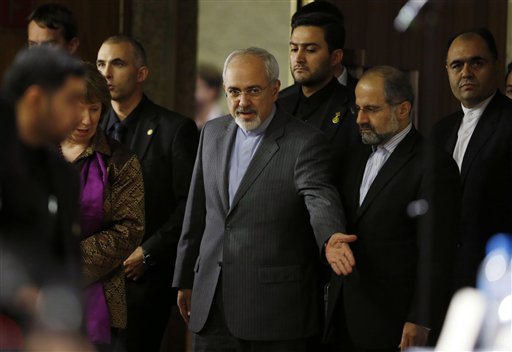Iranian Foreign Minister Mohammed Javad Zarif said nuclear talks with six world powers this week in Vienna were “very successful” in terms of clarifying the issues involved, Iran’s official IRNA news agency reported on Thursday.
“In terms of understanding and clarification, Vienna-2 was among our very successful round of talks … extremely beneficial and constructive,” the news agency quoted him as saying.
There was no indication that any actual progress had been made on any of the substantive issues of the talks regarding the Iranian nuclear program. Critics of the negotiations believe Iran is using the cover of diplomatic talks to buy time to complete its nuclear ambitions and simultaneously ease economic sanctions.
This week the two sides endeavored to iron out their positions on two main issues: the level of uranium enrichment Iran will be allowed, and its Arak heavy-water reactor that the West sees as a source of plutonium for bombs.
They reached no agreements, except agreeing to meet again on April 7-9, again in the Austrian capital. Zarif nevertheless voiced optimism that a final agreement was within reach by the July 20 deadline.
Iran insists that the Arak complex be free to operate under any accord as it would be designed solely to produce radio-isotopes for medical treatments. “The Arak reactor is part of Iran’s nuclear program and will not be closed down,” Zarif told reporters.
In Washington, an overwhelming majority of US senators urged President Barack Obama to insist that, under any final agreement, Iran “has no inherent right to enrichment under the Nuclear Non-Proliferation Treaty”.
That is completely at odds with Iran’s position. Iran, with some of the richest oil reserves on earth, claims a right under the NPT to produce nuclear energy which it insists is for civilian purposes.

COMMENTS
Please let us know if you're having issues with commenting.